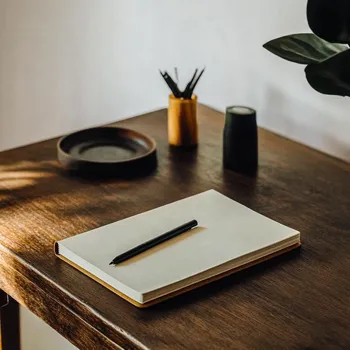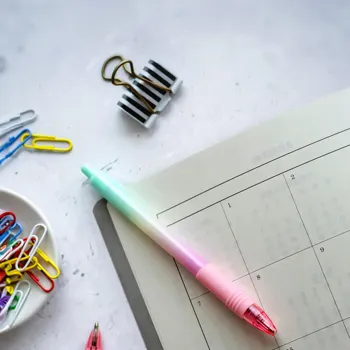Discover the transformative power of routines! Learn how to enhance productivity, reduce stress, and improve well-being. Read more
In this fast-paced duniya, where everything is moving at lightning speed,
the idea of a "routine" might sound a bit boring, even restrictive. But trust me, a well-crafted routine can be a real game-changer, a secret weapon for a happier, more productive, and balanced life.

It's not about becoming a robot; it's about taking control of your day and making the most of your time and energy. Many individuals feel overwhelmed by the demands of work, family, and social obligations.
A well-structured routine can help you prioritize tasks, manage stress, and create a sense of calm amidst the chaos. Think of it as building a strong foundation upon which you can build your dreams.
From students striving for academic excellence to professionals aiming for career advancement, and even homemakers seeking a more fulfilling daily life, the power of routine is universally applicable.
When you have a set plan, you are less likely to procrastinate or get distracted, leading to increased efficiency and a sense of accomplishment. This, in turn, boosts your self-esteem and motivation to tackle new challenges.
Establish routines to free up mental space for priorities; start small and be persistent
A routine, at its core, is simply a set of actions you perform regularly and consistently. It’s about creating predictability, which surprisingly, can lead to more freedom.
When you don’t have to constantly decide what to do next, or remember every little thing, your mind is freed up to focus on more important matters. A good place to start is by identifying your priorities. Kya important hai aapke liye?
Is it exercise, spending time with family, reading, or working on a personal project? Once you know what matters most, you can allocate specific times for these activities in your schedule. Be realistic about what you can achieve and start small.
Don’t try to overhaul your entire life overnight; begin with one or two simple changes that you can easily stick to. For example, you might start by waking up 30 minutes earlier each day or setting aside 15 minutes for meditation.
As you get comfortable with these changes, you can gradually add more routines. The key is to be patient and persistent. It takes time to form new habits, so don't get discouraged if you slip up occasionally. Just get back on track as soon as possible.
Having a routine reduces stress by providing structure, purpose, and self-care
One of the biggest benefits of having a routine is reduced stress. Think about it: when you know what to expect and have a plan in place, you're less likely to feel anxious or overwhelmed. Imagine waking up each morning without a clear idea of what you need to accomplish.

This uncertainty can lead to stress and procrastination. But when you have a pre-planned routine, you can start your day with a sense of purpose and direction. Another way a routine can help manage stress is by incorporating relaxation techniques.
Scheduling time for meditation, yoga, or even just quiet time with a cup of chai can significantly reduce stress levels. These activities help calm the mind and promote a sense of well-being. Moreover, a routine can help you prioritize self-care, which is often neglected in our busy lives.
Activities like regular exercise and healthy eating can significantly impact your physical and mental health. By making self-care a part of your daily routine, you're investing in your long-term health and happiness. This makes you feel much better and more in control.
Structured schedule boosts productivity with time blocking for focused work and goal achievement
Improved productivity is another incredible advantage. When you have a structured schedule, you're less likely to waste time on distractions or unproductive activities. Think about how much time you spend scrolling through social media or watching TV without even realizing it.

A routine can help you limit these distractions and focus on your goals. By allocating specific times for work, study, or personal projects, you can maximize your efficiency and achieve more in less time. A technique many find helpful is time blocking.
This involves dividing your day into blocks of time and assigning specific tasks to each block. For example, you might allocate two hours in the morning for focused work, an hour for lunch and errands, and two hours again in the afternoon for meetings or other tasks.
This helps you stay on track and avoid getting sidetracked. The routine can also help you break down large, daunting tasks into smaller, more manageable steps. When you have a plan for how to tackle a big project, it becomes less overwhelming and more achievable.
Consistent sleep schedule improves rest quality, creating better sleep outcomes
Better sleep is also an amazing positive outcome. A consistent sleep schedule can dramatically improve the quality of your rest. Going to bed and waking up at the same time each day, even on weekends, helps regulate your body's natural sleep-wake cycle, also known as your circadian rhythm.

This makes it easier to fall asleep and wake up feeling refreshed. In addition to a consistent sleep schedule, you can also create a relaxing bedtime routine. This might include taking a warm bath, reading a book, or listening to calming music.
Avoid using electronic devices like phones and tablets before bed, as the blue light emitted from these devices can interfere with sleep. You will find that by doing doing this consistently, your body prepares for sleep, and you find it easier to get into relaxation mode.
Remember, getting enough sleep is essential for overall health and well-being. It affects everything from your mood and energy levels to your ability to concentrate and make decisions.
Embrace flexibility in routines to enhance life balance
Finally, remember that a routine is not set in stone. It should be flexible enough to adapt to changing circumstances and priorities. If you find that a particular routine is no longer working for you, don't be afraid to adjust it. The key is to find what works best for you and your lifestyle.

Also, remember to be kind to yourself. There will be days when you're unable to stick to your routine perfectly. That's okay. Don't beat yourself up about it. Just get back on track the next day. A routine is a tool to help you live a more fulfilling and balanced life.
It's not meant to be a source of stress or pressure. So, embrace the power of routine and watch how it transforms your life, one step at a time.
It's all about finding your flow and creating a life that works for you, allowing you to achieve bigger goals, manage stress, and create a more fulfilling life.
AI Generated Content. Glance/InMobi shall have no liability for the content










